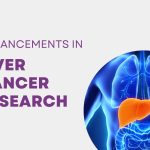Introduction
At GyaniClasses, we are at the forefront of utilizing cutting-edge technologies to revolutionize healthcare. In this article, we explore the groundbreaking advancements in artificial intelligence (AI) and its transformative potential in the field of breast cancer risk prediction. By harnessing the power of AI algorithms and data analysis, we aim to provide a comprehensive understanding of how this technology can enhance early detection and personalized preventive measures. Join us as we delve into the intricacies of AI-driven breast cancer risk prediction and its significant implications for improving patient care and outcomes.
The Role of Artificial Intelligence in Breast Cancer Risk Prediction
- Advanced Risk Assessment: Leveraging AI algorithms, we can analyze extensive datasets that encompass medical records, genetic profiles, lifestyle factors, and more. By considering a broad range of variables, AI enables more accurate and comprehensive risk assessments. This, in turn, facilitates personalized preventive strategies and tailored screening recommendations based on an individual’s unique risk profile.
- Early Detection Empowered: Timely detection is paramount in improving breast cancer outcomes. With AI-based risk prediction models, healthcare professionals can identify individuals at higher risk, allowing for targeted interventions and earlier detection through enhanced screening methods. This early detection translates into prompt treatment initiation and potentially better survival rates.
- Personalized Preventive Measures: AI-enabled risk prediction empowers healthcare providers to offer personalized preventive measures tailored to an individual’s specific risk profile. These measures may include lifestyle modifications, regular screenings, and, when appropriate, genetic testing. By customizing interventions based on individual risk factors, we optimize preventive strategies and aim to reduce the incidence of breast cancer.
The Potential of AI in Breast Cancer Research
- Data Analysis and Pattern Recognition: AI algorithms excel at analyzing vast amounts of breast cancer data, encompassing imaging studies, histopathological reports, and molecular profiles. By identifying complex patterns and correlations within this data, AI contributes to a deeper understanding of the disease. This, in turn, facilitates advancements in research, treatment protocols, and targeted therapies.
- Informed Treatment Decision-Making: AI algorithms can support healthcare professionals in making informed treatment decisions. By analyzing patient-specific data, such as tumor characteristics and treatment responses, AI assists in identifying optimal treatment strategies, predicting treatment outcomes, and guiding personalized treatment plans for individuals with breast cancer.
Ethical Considerations and Future Directions
- Data Privacy and Security: GyaniClasses recognizes the paramount importance of safeguarding patient data in the age of AI-driven healthcare. We prioritize robust data privacy measures, secure storage systems, and adherence to ethical standards to ensure the confidentiality and trust of patients and the wider public.
- Transparency and Explainability: To foster trust and acceptance among healthcare professionals and patients, we emphasize transparency and explainability in AI algorithms. We strive to provide clear explanations of how AI predictions are generated, the underlying algorithms, and the limitations of the technology. This promotes informed decision-making and fosters a collaborative approach to healthcare.
In conclusion, the integration of AI in breast cancer risk prediction represents a paradigm shift in healthcare. GyaniClasses is dedicated to harnessing the power of AI algorithms and data analysis to enhance risk assessment, enable early detection, and personalize preventive measures. By advancing breast cancer research and prioritizing ethical considerations, we are confident that AI-driven innovations will play a pivotal role in improving patient care, outcomes, and ultimately, the fight against breast cancer.





